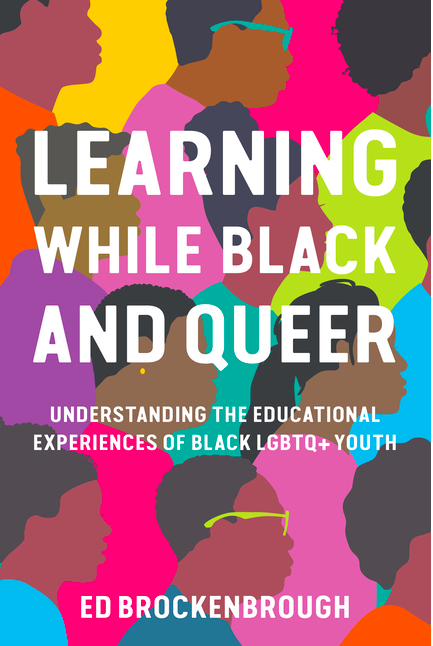 Image 1 of 1
Image 1 of 1


Learning While Black and Queer
"Research-based guidance for educators, teacher educators, and community learning partners to effectively support LGBTQIA+ students of color. In Learning While Black and Queer, Ed Brockenbrough outlines common obstacles to educational equity for Black youth in the LGBTQ+ community and suggests ways for educators to foster the success of Black queer students. This compassionate and actionable work advances what Brockenbrough calls a queerly responsive pedagogy, which addresses the nuances of LGBTQ+ youths' learning experiences in ways that other assets-based approaches, including culturally responsive and sustaining pedagogies, do not. Providing evidence-based recommendations for creating educational spaces and school cultures that promote safety and belonging, Brockenbrough draws on recent empirical studies of urban Black youths aged fourteen to twenty-four who identify as LGBTQ+, as well as personal accounts of Black queer individuals and his own experiences as a secondary school teacher and teacher educator. Among other suggestions, he advocates the adoption of a queer-inclusive curriculum that covers health and sexuality, queer-affirming classrooms, and access to peer and intergenerational kinship networks for Black queer students. He implores educators to reject the deficit narrative of queer victimhood and instead cultivate youth agency. He shows how Black queer resistant capital can be used to confront systemic oppressions such as anti-Blackness, anti-queerness, and cisheteronormativity in educational environments. The guidance offered in this work gives educators in schools and community-based organizations ways to advocate for educational and social justice with and for Black queer youth"--
"Research-based guidance for educators, teacher educators, and community learning partners to effectively support LGBTQIA+ students of color. In Learning While Black and Queer, Ed Brockenbrough outlines common obstacles to educational equity for Black youth in the LGBTQ+ community and suggests ways for educators to foster the success of Black queer students. This compassionate and actionable work advances what Brockenbrough calls a queerly responsive pedagogy, which addresses the nuances of LGBTQ+ youths' learning experiences in ways that other assets-based approaches, including culturally responsive and sustaining pedagogies, do not. Providing evidence-based recommendations for creating educational spaces and school cultures that promote safety and belonging, Brockenbrough draws on recent empirical studies of urban Black youths aged fourteen to twenty-four who identify as LGBTQ+, as well as personal accounts of Black queer individuals and his own experiences as a secondary school teacher and teacher educator. Among other suggestions, he advocates the adoption of a queer-inclusive curriculum that covers health and sexuality, queer-affirming classrooms, and access to peer and intergenerational kinship networks for Black queer students. He implores educators to reject the deficit narrative of queer victimhood and instead cultivate youth agency. He shows how Black queer resistant capital can be used to confront systemic oppressions such as anti-Blackness, anti-queerness, and cisheteronormativity in educational environments. The guidance offered in this work gives educators in schools and community-based organizations ways to advocate for educational and social justice with and for Black queer youth"--
About the Author:
Ed Brockenbrough is an associate professor of education at the University of Pennsylvania. His scholarship examines identity, pedagogy, and power in urban educational contexts, particularly through the lenses of Black masculinity studies and Queer of Color Critique.






